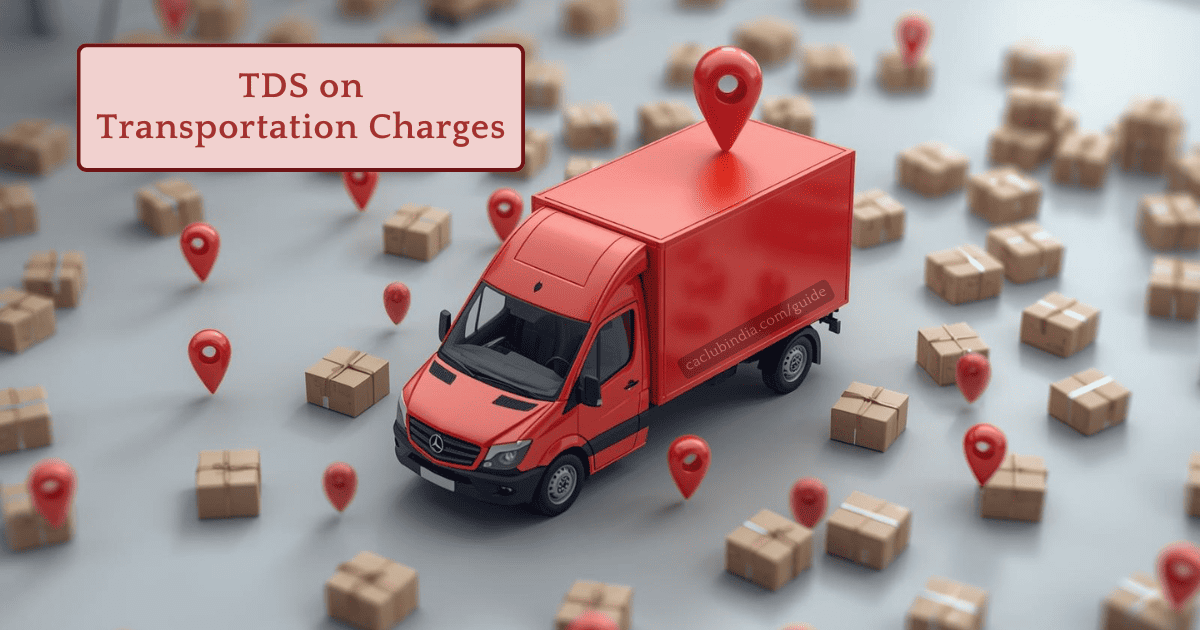Tax Deducted at Source (TDS) is a mechanism under the Income Tax Act, 1961, where the payer deducts tax at source before making payments for certain services, including transport charges. This ensures timely tax collection and compliance. Specifically, TDS on transport charges falls under Section 194C, which deals with payments to contractors and sub-contractors.
Key Takeaways
- Compliance is Key: Always check thresholds (₹30,000 single/₹1,00,000 aggregate) to avoid penalties. Use exemptions wisely for small transporters.
- Rates Matter: Stick to 1-2% for residents; 20% without PAN. Separate GST to minimize TDS base.
- Documentation: Collect PAN and declarations upfront. File returns on time to prevent interest accumulation.
Key TDS Rules on Transport Charges
Under Section 194C, TDS is applicable on payments made to contractors for carrying out any work, including the supply of labor for transportation. Here’s a breakdown of the core rules:
Applicability
TDS applies if the payment is for “work” as defined under the section, which includes transportation of goods by road, rail, or other means. However, it does not apply to payments for mere hiring of vehicles without the involvement of a contractor’s services.
Threshold Limits
No TDS is required if the total payment to a single contractor in a financial year does not exceed ₹30,000. For multiple contracts with the same contractor, if the aggregate exceeds ₹1,00,000 in a year, TDS becomes applicable on the entire amount.
TDS Rates
- For individual or HUF contractors: 1% if the payee is a resident individual or HUF.
- For other contractors (e.g., firms, companies): 2%.
- Higher rates apply if the payee does not furnish PAN: 20% under Section 206AA.
- No TDS on the GST component if separately mentioned in the invoice.
Exemptions and Relaxations
Transporter Exemption If the transporter owns 10 or fewer goods carriages at any time during the previous year and furnishes a declaration (Form 15G/15H or PAN details), no TDS is deducted. This was introduced to ease the burden on small transporters.
- Payments to government entities or for personal use are exempt.
- No TDS if the payment is for plying, hiring, or leasing goods carriages where the transporter provides a declaration under Section 194C(6).
Compliance Requirements
- Deduct TDS at the time of credit or payment, whichever is earlier.
- File TDS returns quarterly (Form 26Q) and issue TDS certificates (Form 16A) to the payee.
- Late deduction or non-deduction can attract interest (1% per month) and penalties up to the TDS amount.
These rules were last significantly updated in the Finance Act, 2023, with no major changes announced for FY 2024-25 as of September 2025. Always cross-verify with the latest CBDT circulars for any amendments.
FAQs
Transport charges include freight payments for moving goods via contractors. It excludes pure vehicle rentals without labor supply.
No, TDS under Section 194C applies only to resident contractors. For non-residents, Section 195 may apply for withholding tax.
TDS must be deducted at 20%, even if below thresholds. Encourage payees to share PAN to avail lower rates.
Yes, the deducted TDS appears in your Form 26AS, and you can claim it while filing ITR to adjust against your tax liability.
Declarations for exemptions (e.g., under sub-section 6) can be submitted physically or electronically, but maintain records for audits.
You may face disallowance of expense under Section 40(a)(ia), interest, and penalties. Rectify by paying TDS with interest.
If it’s a contract for transport services exceeding thresholds, yes. But app-based aggregators may handle TDS themselves.


